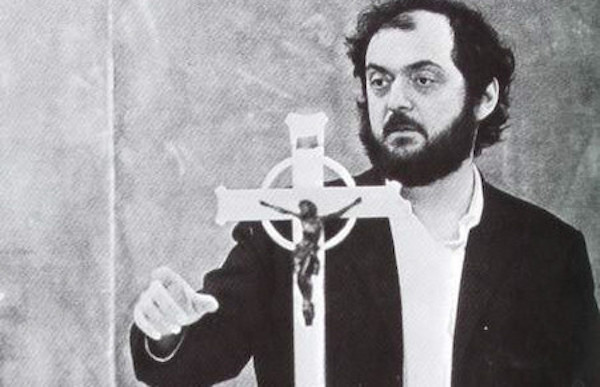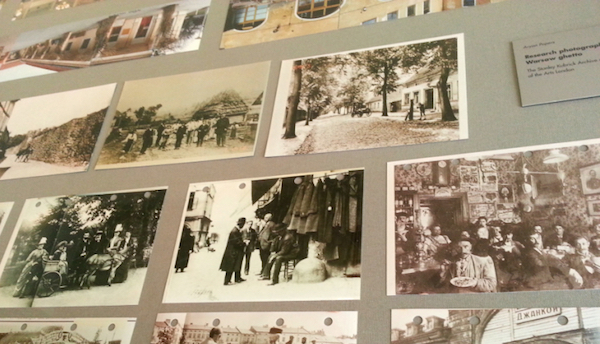The Lost Projects of Stanley Kubrick: Part 2
During Stanley Kubrick's 48-year career as a filmmaker, he only made 13 films. It's widely known that he would devote a monumental amount of time to the every aspect of his projects from research and pre-production to the shooting and editing; however, it's somewhat staggering to find just how much of his career was dedicated to projects that never came to fruition.
For part one of this two-part series, we’ll take a look at a few of Kubrick’s lesser known unfinished projects. Each was nearly a reality, but feel off the grid for one reason or another.
Aryan Papers (AKA Wartime Lies)
Kubrick was very intrigued by the events of the Holocaust and wanted to craft a project revolving around this subject. In 1976, he attempted to persuade the Polish-born Jewish writer Isaac Bashevis Singer to come up with an original screenplay. Specifically, Kubrick requested a "dramatic structure that compressed the complex and vast information into the story of an individual who represented the essence of this man-made hell." However, his efforts to convince Singer to contribute to the project were thwarted with Singer telling Kubrick, "I don't know the first thing about the Holocaust.”
This concept was then shelved, and Kubrick’s focus shifted toward more tangible projects, particularly The Shining and Full Metal Jacket; although, the desire to make a Holocaust film continued to burn inside him.
The project would surface again in the early 90s when Kubrick penned a script entitled Aryan Papers based off the book Wartime Lies by Louis Begley Jr. The story follows two Jewish family members, a ten-year-old boy and his aunt, who are both in hiding from the Nazi regime during the Holocaust. Told through the eyes of the young boy, he recalls how his Aunt protected him by pretending to be Catholics in order to survive.
Kubrick selected cinematographer Elemér Ragályi as Director of Photography, and even traveled to the Czech city of Brno, as he conceived it as a possible location for the scenes of Warsaw during wartime. Joseph Mazzello (Jurassic Park) had been cast as the young boy, and Uma Thurman and Johanna ter Steege (George Sluzier’s The Vanishing) were even being heavily considered for the role of the aunt character.
According to MTV, Thurman recounted: “I was going to make a film with [Kubrick] -- for a long time I was scheduled to make a film with him. I was contracted to do it and things happened, and he shelved the film. He never made the film.”
She further confessed: "It was devastating because it was an incredible part. It would have been the part of my career, the best part I ever had been offered or had written for me, or anything."
All throughout this time, Steege was also kept in waiting with promises coming from Kubrick that cameras would role. Steege discussed this at length with The Independent, commenting that “We know that [Kubrick] was a perfectionist. We also know the dangerous thing for a perfectionist is that, at a certain point, he comes to a zero.”
She ruminated on the matter further: "I don't regret what happened. I still feel it as a huge compliment. It was a wonderful experience. The ending was very painful. There was a huge future... then it felt like a huge balloon was suddenly burst. Then, that's it. You have to go on. Not for the first time in my life, I realized that personal happiness has nothing to do with success.”
Research materials Kubrick had on the Warsaw Ghetto.
As to why the project fell through, there’s no definitive answer; however, there is a bit of speculation.
Kubrick’s widow Christine Kubrick, mentioned that the Stanley was overcome with depression because of all of the research he did on the Holocaust. She recounted finding him alone in his library one night looking at a Holocaust book and weeping heavily.
However, Tony Frewin, Kubrick’s assistant, told Vice, “We spent nearly two years, day in day out, researching that. And in that same period, Spielberg got the idea for Schindler's List, did the pre-production, made the film, released it and we were still shuffling index cards… As Stanley said, if you really want to make an accurate film about the Holocaust, it's got to be unwatchable. But he thought Schindler's List was a hard act to follow, and it wasn't the right time to do Wartime Lies.”
The time for the project nearly came in the mid-2000s. Warner Bros. still held the rights to the project and even hired The Departed screenwriter, William Monahan, to pen a new draft of the script; although, no ground was ever broken.
Still, Kubrick’s brother-in-law Jan Harlan welcomes another filmmaker to tackle the challenge of the film; however, it’s clear that the Kubrick’s high standards have rubbed off on him over the years. Harlan told The Independent: “It would have to be really a good director. In the wrong hands, this would become a very cheap movie. But if Ang Lee wanted to do it, I would jump to the ceiling!”
Napoleon (AKA the greatest movie never made)
Napoleon is Kubrick’s most renowned unmade project, and the sweeping film was to chart French statesman and military leader’s entire life story from his birth in Corsica to his death in St. Helena. Originally intended as his follow-up feature to 2001: A Space Odyssey (1968), Kubrick pitched the large-scale biopic as a $5 million production (what would be $100 million by today’s standards) with highly ambitious plans for what he called "the best movie ever made."
Research was, of course, a huge part of Kubrick’s pre-production process, and for Napoleon, he attempted to see every film that was ever made on the subject, including Abel Gance’s Napoléon and the Soviet film series War and Peace — neither of which he really cared for. In addition to this, he also read a great number of books on the French emperor — Felix Markham’s 1966 biography in particular was used as a launching point for his thorough study.
With the help of assistants, Kubrick would create a meticulous index card library about everyone in Napoleon’s life, cross referenced to an faultless degree, including the places and deeds of Napoleon's inner circle during its operative years. Kubrick scouted locations, planning to film large portions of the film on location in France, in addition to the use of UK sound stages. The director was also going to film the battle scenes in Romania and had enlisted the support of the Romanian army to achieve this; senior army officers had committed 40,000 soldiers and 10,000 cavalrymen to Kubrick's film for these battle sequences.
Kubrick also used a lot of paintings and pictures for reference and research, and he was even mulling around the idea of creating his own computerized database through the help of IBM to catalog his exhaustive information, which was unheard of for the early 70s. According to editor of the book The Greatest Movie Never Made, Alison Castle, "If you searched 'Joséphine' you were going to get possibly every portrait that was made of her at the time.” His rigorous research, voluminous notes, and extensive location scouting details regarding this unfinished project have all been captured in Castle’s book, which can still be purchased here.
Ian Holm, Alec Guiness, Laurence Olivier and Patrick Magee were all rumored as potential cast members for the project, with Kubrick considering David Hemmings (Blow Up) for the titular role. Interestingly enough, Kubrick was seriously pursuing the lovely Audrey Hepburn to play Joséphine, which she thoughtfully declined — you can read the letters between Kubrick and Hepburn here.
Ultimately, the project fell apart due to the commercial failure of similar period-piece war epics, such as Sergei Bondarchuck’s War and Peace (1968) and Waterloo (1970). “He had shelved ‘Napoleon’ after MGM and UA dropped the project,” Kubrick’s longtime producer Jan Harlan told Filmmaker Magazine. “He was very sad since he was so well prepared and in full swing to do the film in Romania, France and England. But three weeks later he was back on track with various [other] ideas.”
A Clockwork Orange (1971) would become the filmmaker’s next film, which is as opposite a period piece as you can get, but there’s a silver lining to his exhaustive research on Napoleon. A significant portion of his historical research would influence Barry Lyndon (1975), whose storyline ends in 1789, approximately fifteen years prior to the commencement of the Napoleonic Wars.
In March of 2013, Kubrick’s longtime pal Steven Spielberg announced his intention to create a television miniseries based upon Kubrick’s completed screenplay for Napoleon, which you can read in its entirety here. In May of 2016, HBO announced that they’d produce said miniseries with True Detective director Cary Fukunaga signing on to helm the project; however, no new revelations regarding the project have surfaced.
Eager to learn more about Stanley Kubrick?! Check out the links below:
Five Fun Facts About Stanley Kubrick
Five Fun Facts About The Shining
Five Fun Facts About A Clockwork Orange
The Lost Projects Of Stanley Kubrick: Part 1
Top 10 Stanley Kubrick Films
Our Favorite Stanley Kubrick Photographs
Variant Poster Art Of Kubrick Films
]What do you think? Which of these unfinished Kubrick projects would you like to see made? We want to know. Share your thoughts and feelings in the comments section below, and as always, remember to viddy well!







